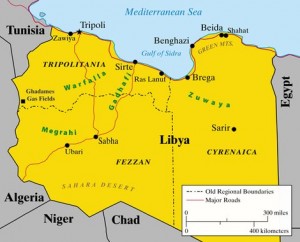Any attempt to solve the Libyan conflict must now include the Russians, who have been very busy with Syria and have provided little input into the Libyan crisis. But Moscow appears to be re-engaging different Libyan factions. On Nov. 29, Field Marshal Khalifa Hifter, commander of the Libyan armed forces backed by the Tobruk-based government, visited Moscow and met with Foreign Minister Sergey Lavrov to seek his help in lifting the arms embargo imposed on Libya by the United Nations in March 2011. And in January, Hifter was received on board Russia’s flagship aircraft carrier, the Admiral Kuznetsov, while it was sailing back from its Syrian mission.
Meanwhile, on March 2, Lavrov received Sarraj, Libya’s UN-backed prime minister, urging dialogue among the different Libyan factions, including Hifter. This signaled the strongest message yet that Moscow is returning to the Libyan conflict.
Unless the latest developments in the Syrian war further upset the political status quo between Washington and Moscow, it is likely that both will find more common ground to agree upon in Libya. Both Russia and the United States worry about Libya becoming a safe haven for international terror groups, including IS, and both should realize that unless Libya is united, it will be easy prey for IS — which is under heavy pressure in both Syria and Iraq.





